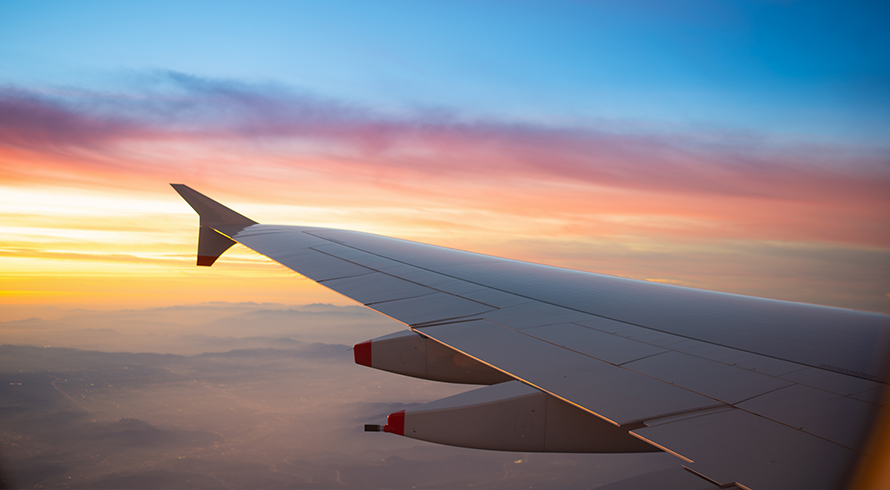Taking money abroad lawfully – Just use your single discretionary allowance
General principles
The rules regarding the SDA are set out in sB.4(A) of the Currency and Exchanges Manual for Authorised Dealers (AD Manual). The AD Manual must be read with the Exchange Control Regulations, 1961 (Regulations).
As stated in our previous alert, the SDA comprises an amount of R1 million per calendar year, which any resident who is 18 years or older may use for any legal purpose abroad, without obtaining a tax clearance certificate. For example, the SDA may be used for investment purposes or to send gifts to persons abroad, but may not be used to export gold or jewellery. There are a few additional rules that apply.
The AD Manual states that the SDA may be used solely at the discretion of the resident who is entitled to it, without any documentary evidence having to be produced to the Authorised Dealer (AD), such as a bank through which the transfer is made. However, where the SDA is used for travel purposes outside the Common Monetary Area (CMA), which consists of Lesotho, Namibia, South Africa and Swaziland, such persons must produce their passenger ticket(s) to the relevant AD.
The AD Manual further states that the SDA may be transferred abroad in Rand, but that transfers of a capital nature must be converted to foreign currency through an AD. Transfers of a capital nature refers to those transactions listed as such in sJ.(G) of the AD Manual. Section J.(G) of the AD Manual sets out the classification of outward payments and the codes that must be used by AD’s when reporting outward payments to the South African Reserve Bank (SARB). In this regard, sJ.(G) refers to a number of transfers by South African resident individuals, which are considered to be of a capital nature, including investments made abroad in respect of shares, bonds, money market instruments and property.
SA resident individuals can also transfer monetary gifts and loans within the SDA limit of R1 million per applicant during a calendar year to non-resident individuals and to resident individuals who are overseas temporarily, but not to those residents who are abroad on holiday or business travel. In addition to monetary gifts, SA resident individuals may export Krugerrand coins or the equivalent in fractional Krugerrand coins up to an amount of R30 000 as gifts to non-residents, subject to the completion of the prescribed SARS Customs Declaration.
It should also be noted that where payments take place for current account transactions dealt with elsewhere in the AD Manual, such payments will not be deducted from an individual’s SDA limit. Where such payments are made to settle legitimate foreign obligations, it is necessary to present documentary evidence to the AD to prove the purpose of such payment, for example, the relevant invoice, court order or agreement.
Finally, the SDA may not be used to disguise transfers for other purposes for which foreign currency would be refused under the appropriate sections of the AD Manual. In this regard, it is also important to take account of the provisions of Regulation 2(4). It states that persons must use foreign currency acquired from an AD for its stated purpose (the purpose they indicated when they applied for the foreign currency) and may not do anything to cause the foreign currency to not be used for its stated purpose.
Documentary and procedural requirements
In terms of the AD Manual, when SA resident individuals make transfers abroad and make use of their SDA in this regard, they should provide accurate information to the AD assisting them with such transfer, so that the AD can correctly report the purpose of the transaction to the SARB. Where persons made use of their SDA to take funds abroad, AD’s must indicate this when reporting the transaction to the SARB.
SA resident individuals transferring funds by making use of their SDA must produce a valid green bar-coded South African identity document or Smart identity document card for identification purposes and the identity number is mandatory when the transaction is reported to the SARB.
Specific rules for importers
Where SA resident importers make import payments under the SDA dispensation, they must have a valid customs client number
(CCN) and such CCN must be recorded
by the AD when reporting the transaction. Such importers must also comply with the provisions of Regulation 12.
Regulation 12(1) states, amongst other things, that if goods purchased have not been consigned to SA within four months from the date on which payment for the goods was made, such importers must within 14 days from the expiry of the four-month period, report this fact to the SARB or to an AD. The SARB or a person authorised by the SARB, may then order such importers to assign their rights to the goods, to the SARB or to a person authorised by the SARB, in exchange for consideration paid to the importers.
Comment
SA residents wishing to transfer funds abroad for investment or other purposes, should therefore ensure that they adhere to the rules set out above. Importantly, SA residents should keep track of the amount of funds transferred annually by making use of their SDA, to ensure that they do not exceed the R1 million limit. If they wish to make larger investments or wish to take funds in excess of R1 million abroad during a calendar year, they should apply to make use of the foreign investment allowance.
Another important consideration should be kept in mind by persons who take funds abroad in the form of travel allowances. Where persons make use of their SDA to take funds abroad as a travel allowance, they may not deposit the unused portion of the travel allowance into their foreign bank account or use such funds for investment purposes abroad. The funds taken abroad as a travel allowance may only be used for purposes of travel and if not, must be converted back into Rand within 30 days of a person’s return to SA.
The information and material published on this website is provided for general purposes only and does not constitute legal advice. We make every effort to ensure that the content is updated regularly and to offer the most current and accurate information. Please consult one of our lawyers on any specific legal problem or matter. We accept no responsibility for any loss or damage, whether direct or consequential, which may arise from reliance on the information contained in these pages. Please refer to our full terms and conditions. Copyright © 2025 Cliffe Dekker Hofmeyr. All rights reserved. For permission to reproduce an article or publication, please contact us cliffedekkerhofmeyr@cdhlegal.com.
Subscribe
We support our clients’ strategic and operational needs by offering innovative, integrated and high quality thought leadership. To stay up to date on the latest legal developments that may potentially impact your business, subscribe to our alerts, seminar and webinar invitations.
Subscribe




